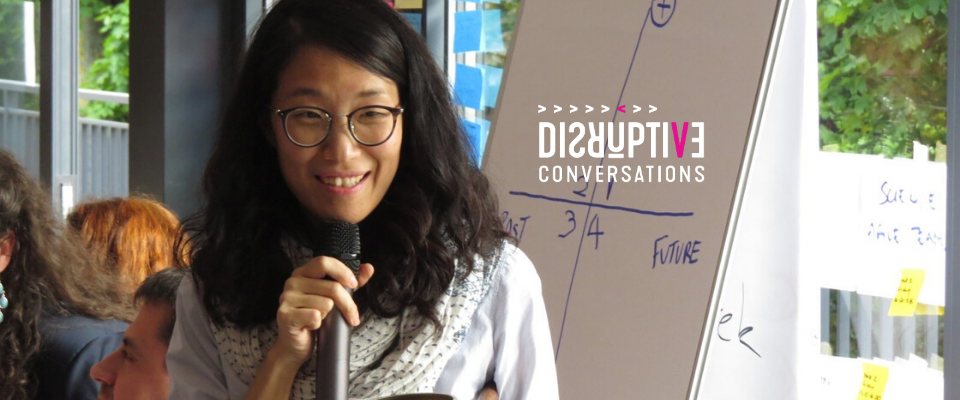Can we change the way people have dialogue? Can we make their interactions better?
This is the simple premise of Haesun’s work. Admittedly, we share similar perspectives on the role conversations play and their potential to help people thrive.
So often, we blame other people for not communicating well. When we are in fact not listening. Conversations, although we have them every day, are complex. If we are to improve our conversations, we need to be more intentional in how we enter dialogue. Haesun asks us to pause and be intentional about our interactions.
We create patterns.
Many of us can think of someone with whom we would like to have a better conversation. For many of us, it is probably a sibling or an ex. Instead of living with these terrible conversations, what if we asked, what would we like to be different about our conversation? Rarely do we ask questions like this. It has probably never occurred to us to ask what do wish our conversation were like? We are too often caught in the existing pattern or are emotional about the conversation in which are involved.
Haesun has developed a framework for helping us identify when we are in an unhealthy conversation so can work toward what we hope to get out of the conversation. It is a way of breaking patterns so our conversations could be just a little bit better.
Conditions of possibility
The idea of creating the conditions of possibility is one of my favorite ideas. Using Haesun’s Dialogic Orientation Quadrant can help us open get closer to cocreating conditions of possibility. In this podcast, she tells a story of how her mother always encouraged her to dream. Encouraged her to believe that anything was possible. I hope that most of us know that anything is not possible but the culture of creating a sense of hope is one that we can all probably benefit from.
For so many of us, we focus on faults. What is not going well, what did not go well, and why things will not work. In this conversation with Haesun she provides, at least in my eyes, a sense of pragmatic hope. A hope that draws on the future you wish to bring forth and the times in the past where you have done well at using the resources to overcome challenges.
Where you orient your attention that is where you move towards.
I have played sports all my life. Over and over, I have been taught, the ball will go in the direction you are looking. If you look down, the ball will go down. If you look up, the ball will go up. In a race, keep your eyes on the finish line. Do not look left or right, ever! Run your race.
In life, it is very easy to pay attention to all the things that are not going well and not look at the things you want more of. The conversation with Haesun is a reminder that we all need a nudge to orient ourselves to things we want more of.
Change is visible. Change is audible.
I have taken classes with Haesun and she often encourages her learners to record their conversations. Look at what you do does. A simple provocation with profound implications. I see it as an invitation to be reflective. We all have a habit of mouth and a habit of mind. The way connect the two can be very intentional should we choose to do so. How do we improve our habits so our conversations are better?
There is a lot of cover in this episode. Including a story about dying with dignity but to learn more, I encourage you to listen to the episode.
Links in the podcast:
To follow Haesun’s work visit: https://www.briefcoaching.ca/
To learn more about her quadrant follow this link: https://www.briefcoaching.ca/blog/dialogic-orientation-quadrant
